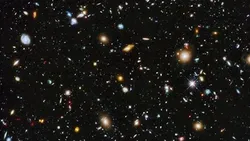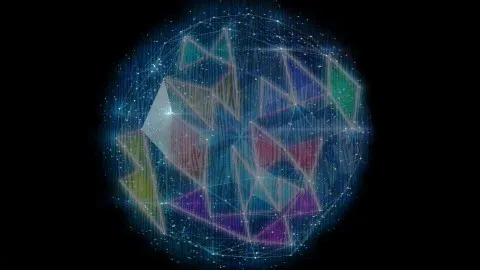
Astronomy&Astrophysics 
This course explores the formation and structure of the Milky Way Galaxy, the life and death of stars, dark matter and dark energy, and the end of the universe. Students will learn about white dwarfs, supernovae, neutron stars, and black holes, and how they shape the universe. They will also explore the mysteries of dark matter and dark energy, and the potential fate of the universe. ▼
ADVERTISEMENT
Course Feature
![]() Cost:
Cost:
Free
![]() Provider:
Provider:
Youtube
![]() Certificate:
Certificate:
Paid Certification
![]() Language:
Language:
English
![]() Start Date:
Start Date:
On-Demand
Course Overview
❗The content presented here is sourced directly from Youtube platform. For comprehensive course details, including enrollment information, simply click on the 'Go to class' link on our website.
Updated in [May 25th, 2023]
Astronomy & Astrophysics is a course that explores the formation of the Milky Way Galaxy and the structure of the Sun. It also covers the life and death of stars, such as white dwarfs, supernovae, neutron stars, and black holes. Additionally, the course delves into the mysteries of dark matter and dark energy, and the end of the universe. Students will gain an understanding of the current theories and research related to these topics.
[Applications]
After completing this course, students should be able to apply their knowledge of astronomy and astrophysics to a variety of topics. They should be able to explain the formation of the Milky Way galaxy and the structure of the Sun. They should be able to discuss the life and death of stars, including white dwarfs, supernovae, neutron stars, and black holes. They should be able to explain dark matter and dark energy, and discuss the end of the universe. Finally, they should be able to apply their knowledge to current astronomical research and explore the possibilities of space exploration.
[Career Paths]
1. Astronomer: Astronomers study the universe and its components, such as stars, planets, galaxies, and other celestial bodies. They use telescopes, satellites, and other instruments to observe and analyze the data they collect. Astronomers are also involved in the development of new technologies and techniques to further explore the universe. With the development of new technologies, such as space-based telescopes, astronomers are able to observe and study the universe in greater detail than ever before.
2. Astrophysicist: Astrophysicists study the physical properties of the universe, such as its structure, composition, and evolution. They use mathematical models and computer simulations to understand the behavior of stars, galaxies, and other celestial bodies. Astrophysicists also develop theories to explain the origin and evolution of the universe. With the development of new technologies, such as space-based telescopes, astrophysicists are able to observe and study the universe in greater detail than ever before.
3. Space Scientist: Space scientists study the physical properties of the universe, such as its structure, composition, and evolution. They use mathematical models and computer simulations to understand the behavior of stars, galaxies, and other celestial bodies. Space scientists also develop theories to explain the origin and evolution of the universe. With the development of new technologies, such as space-based telescopes, space scientists are able to observe and study the universe in greater detail than ever before.
4. Astronautical Engineer: Astronautical engineers design, build, and test spacecraft and other space-related systems. They use their knowledge of physics, mathematics, and engineering to develop new technologies and techniques for exploring the universe. Astronautical engineers are also involved in the development of new technologies and techniques to further explore the universe. With the development of new technologies, such as space-based telescopes, astronautical engineers are able to observe and study the universe in greater detail than ever before.
[Education Paths]
1. Bachelor of Science in Astronomy & Astrophysics: This degree program provides students with a comprehensive understanding of the physical principles of astronomy and astrophysics, including the structure and evolution of stars, galaxies, and the universe. Students will also gain an understanding of the latest developments in the field, such as dark matter and dark energy.
2. Master of Science in Astronomy & Astrophysics: This degree program provides students with a more in-depth understanding of the physical principles of astronomy and astrophysics, including the structure and evolution of stars, galaxies, and the universe. Students will also gain an understanding of the latest developments in the field, such as dark matter and dark energy.
3. Doctor of Philosophy in Astronomy & Astrophysics: This degree program provides students with an advanced understanding of the physical principles of astronomy and astrophysics, including the structure and evolution of stars, galaxies, and the universe. Students will also gain an understanding of the latest developments in the field, such as dark matter and dark energy.
4. Master of Arts in Astronomy & Astrophysics: This degree program provides students with a comprehensive understanding of the history and philosophy of astronomy and astrophysics, including the structure and evolution of stars, galaxies, and the universe. Students will also gain an understanding of the latest developments in the field, such as dark matter and dark energy.
Course Provider

Provider Youtube's Stats at AZClass
Discussion and Reviews
0.0 (Based on 0 reviews)
Explore Similar Online Courses

Trade Forex 13 Patterns - Golden Ratios Secret Revealed

Learning Graphic Design: Set Perfect Text

Python for Informatics: Exploring Information

Social Network Analysis

Introduction to Systematic Review and Meta-Analysis

The Analytics Edge

DCO042 - Python For Informatics

Causal Diagrams: Draw Your Assumptions Before Your Conclusions

Whole genome sequencing of bacterial genomes - tools and applications

Astrophysics & Cosmology

Astrophysics & Cosmology

Astrophysics
 Related Categories
Related Categories
 Popular Searches
Popular Searches
Quiz
 Submitted Sucessfully
Submitted Sucessfully
1. What is the structure of the Sun?
2. What is the end of the universe?
3. What is dark matter?


Start your review of Astronomy&Astrophysics